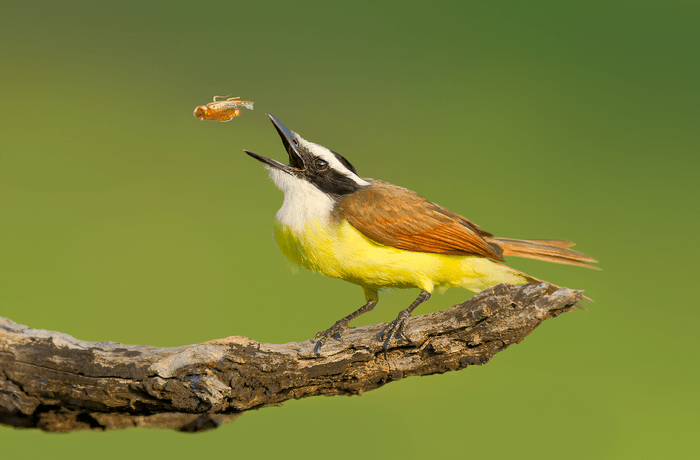
Rare Birds: Great Kiskadee
Though it’s quite localized in the United States, seen only in the very southern tip of Texas, the great kiskadee is a common sight throughout much of Central and South America. Kiskadees are large-bodied flycatchers, named for their boisterous kis-ka-dee vocalizations.
In the Rio Grande Valley, bright yellow kiskadees are nearly ubiquitous, sitting conspicuously on open perches while belting out their loud calls.
Kiskadees aren’t the only south Texas treat. If you make the trek, you’ve got a great shot at tracking down green jays and Altamira orioles, too. Plus look for hundreds of rare butterflies.
Check out the most common birds found in North America.
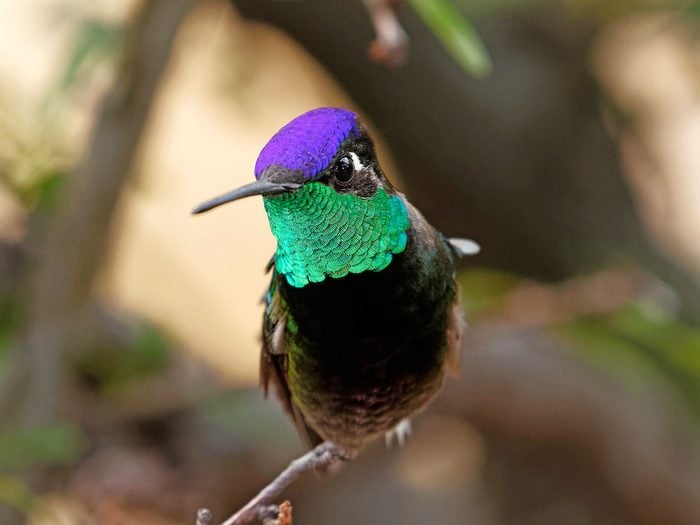
Rivoli’s Hummingbird
Found year-round from Nicaragua to Mexico, a small number of Rivoli’s hummingbirds move north to breed in southeast Arizona and nearby New Mexico. Large by hummingbird standards, a male Rivoli’s dark body is offset by a rich emerald green gorget. When the light hits just right, the iridescent crown flashes brilliant purple. The species was formerly called the magnificent hummingbird.
Deliberately traveling along a regular feeding route, Rivoli’s hummingbirds use their long bills to sip nectar from flowers. They will also visit sugar-water feeders.
Find out where you can see endangered California condors.
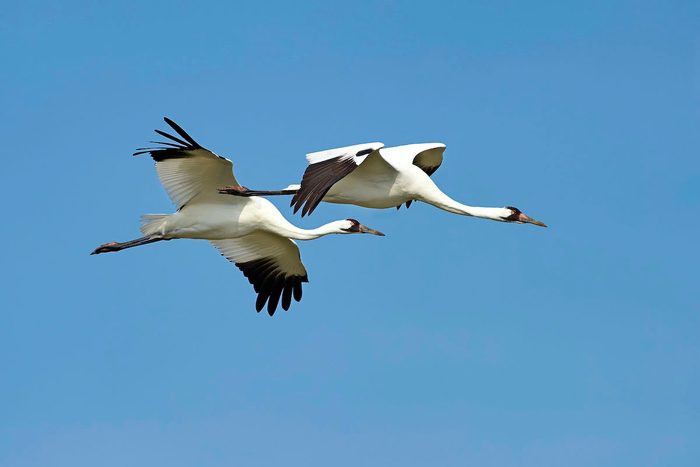
Whooping Crane
Towering at nearly 5 feet, whooping cranes are the tallest North American birds. Just 21 whooping cranes remained in the 1940s. They are still quite rare, with close to 700 wild birds and more than 100 captive birds remaining.
The last naturally migratory population moves between Wood Buffalo National Park in north central Canada and Aransas National Wildlife Refuge in southeastern Texas. An eastern migratory group of whoopers, which was reintroduced, travels between the upper Midwest and Florida. Resident nonmigratory flocks have also been reintroduced to Florida and Louisiana.
Discover interesting facts about sandhill cranes.
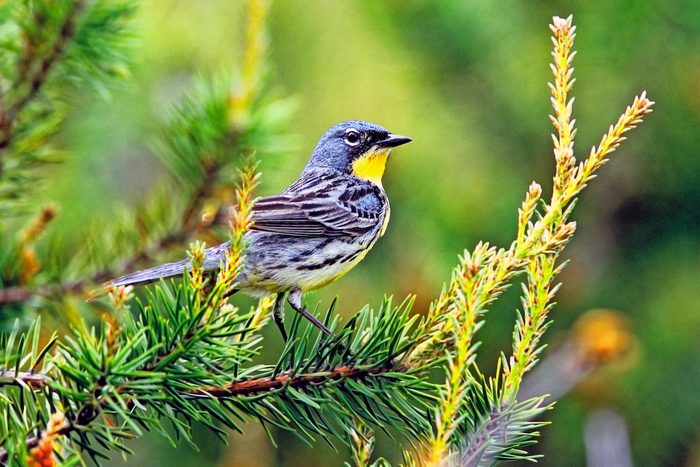
Kirtland’s Warbler
As a habitat specialist, Kirtland’s warblers are found only in small pockets of the planet. Large by warbler standards, they nest in dense stands of young jack pine forest in Michigan, Wisconsin and Ontario.
Meet 20 stunning warblers to look for in spring.
Your best bet for seeing Kirtland’s warblers is to make a trip to their breeding grounds, although a few are spotted during migration when the birds are on their way to and from their Caribbean wintering ranges. Excitement fills the air during these brief encounters. Throngs of birders gather to catch glimpses of this tricky-to-spot species.
Here’s how to attract warblers to your backyard.
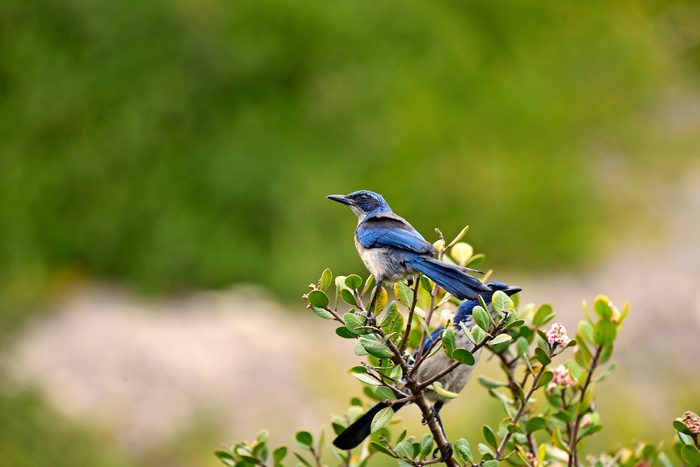
Island Scrub-Jay
The bird with the most limited range in North America is the island scrub-jay, found only on Santa Cruz Island within California’s Channel Islands National Park. Island scrub-jays are bigger and a bolder blue than their mainland relative, the California scrub-jay.
Unlike the Florida scrub-jay, which is noted for communal cooperative breeding, the island variety is both monogamous and territorial. Because of limited options on their island, nonbreeding island scrub-jays will often wait until suitable breeding areas and mates become available.
Meet 8 types of jays you should know.
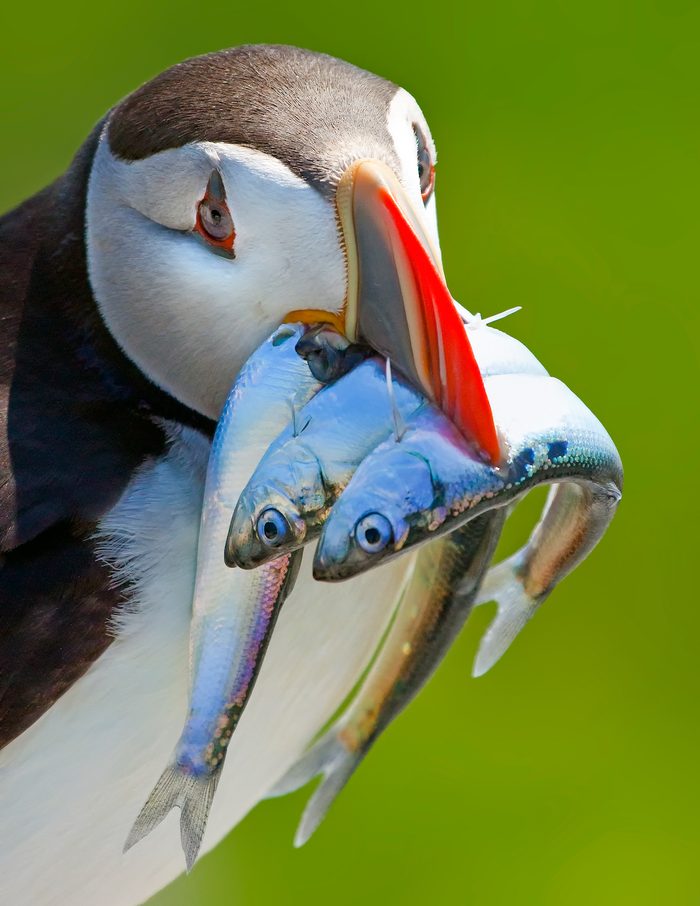
Atlantic Puffin
Puffins are birds that anyone can enjoy and identify. The National Audubon Society’s Project Puffin has helped restore these portly seabirds to coastal Maine during the summer breeding season. Puffins can live 30 or more years. The birds first start nesting when they are 5 years old. They nest on rocky islands in burrows and crevices.
Puffins carry multiple fish at a time in their oversized bills. Unfortunately, warming ocean temperatures are affecting the populations of fish that these puffins rely on.
Here are the best ways to see puffins in Maine.
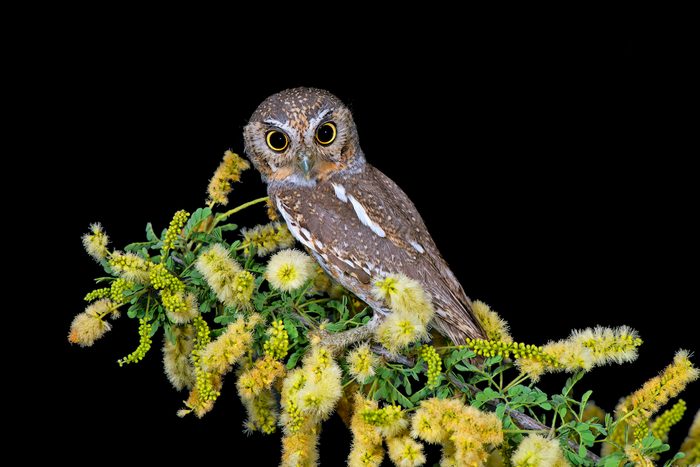
Elf Owl
Roughly the size of a large sparrow (and weighing less than a golf ball!), elf owls are the smallest owls in both North America and the world. If you are lucky enough to track one down, its short tail and blurry feather streaking will help distinguish it from similar-looking pygmy-owls.
Elf owls thrive in a wide variety of habitats, breeding along the southern border states in the U.S. As insect-eating specialists, they migrate short distances and winter in Mexico from around October to late February or early March.
Check out fun owl facts you should know.
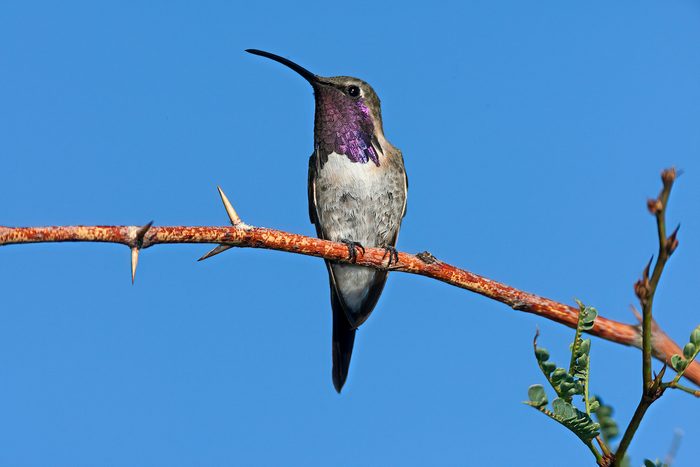
Lucifer Hummingbird
The lucifer hummingbird is likely named for its bright purple throat gorget. The word lucifer stems from Latin words that mean “light bearer” or “light bringer.” Another name for this tiny flier is lucifer sheartail. The sheartails are a group of hummingbirds with long, narrow, deeply forked tails. Lucifer hummingbirds reach the southern U.S. in the Big Bend region of Texas and spots along the Arizona and New Mexico border during their breeding season.
Look for these 8 species of hummingbirds in Texas.
Male lucifer hummers display for females at nest sites. This sets them apart from most hummingbirds, which perform their elaborate courtship flights near feeding areas.
Next, learn more about rare raptors and lesser-known birds of prey.
